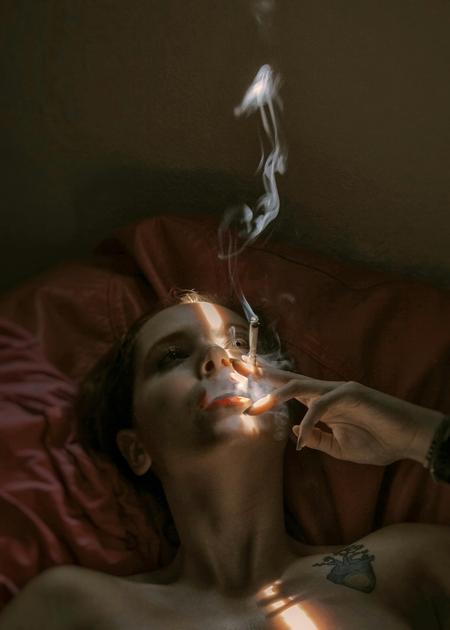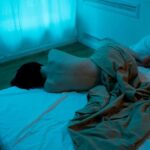Are you struggling with insomnia that feels like it’s being dismissed as mere depression? Many women face this silent battle, often overlooked in the conversation about mental health. The connection between sleepless nights and emotional well-being is far more intricate than most realize. This article dives deep into the shadows of women’s insomnia and how it is frequently misdiagnosed as depression, leaving the real issues ignored.
Understanding Women’s Insomnia
Insomnia is more than a mere inability to sleep; it can be a complicated web of feelings and concerns that many women face, especially as they age. Many women between the ages of 30 and up find themselves stuck in a cycle of restless nights, anxiety, and overwhelming fatigue. This is often compounded by various life transitions such as career changes, parenting demands, or hormonal shifts.
For these women, insomnia may feel like a constant companion. They may lie awake, staring at the ceiling, thinking about the day’s events or their endless to-do lists. This chronic lack of restorative sleep affects their mood, energy levels, and overall well-being. Understanding that insomnia is often intertwined with the challenges of daily life is vital.
The Misdiagnosis Crisis
For many women, insomnia can be misdiagnosed as depression. Doctors, seeing symptoms such as fatigue, irritability, or loss of enthusiasm for activities, may conclude that depression is the root cause. However, the reality is often more nuanced. Sleep issues can be at the core of these symptoms, yet they remain overlooked in many diagnoses.
This misdiagnosis crisis can lead to unnecessary prescriptions and a feeling of helplessness. Women may feel that their concerns are not being addressed, and they often endure the side effects of medications that may not align with their actual struggles.
Signs Your Sleep Issues Are Ignored
Recognizing the signs that your sleep issues are being ignored can empower you to seek the right help. Here are some indicators:
- Frequent fatigue: If you feel tired regardless of how much sleep you get, it may signal deeper issues.
- Nightly awakenings: Waking multiple times during the night may indicate insomnia rather than depression.
- Lack of focus: Struggling to concentrate may stem from poor sleep rather than a mental health issue.
- Persisting feelings of anxiety: Anxiety can grow when sleep patterns are disrupted, leading to a vicious cycle.
- Frustration with treatment: If medications for depression don’t help your sleep, it might indicate a misdiagnosis.
If you resonate with these signs, it’s essential to advocate for your health. Remember, it’s okay to seek a second opinion.
How Depression and Insomnia Are Linked
Understanding the link between depression and insomnia is crucial. While they can exist independently, they often feed off one another. Poor sleep can exacerbate feelings of sadness and anxiety, prompting a decrease in overall mental health. Conversely, depressed individuals may find it difficult to sleep, leading to a cycle of exhaustion and emotional struggles.
This tangled relationship suggests that treating one aspect without addressing the other may lead to incomplete solutions. Women need to explore their sleep patterns truly and openly discuss these with their healthcare providers.
Why Women Are More Affected
Women are disproportionately affected by insomnia due to various factors:
- Hormonal changes: During menstruation, pregnancy, and menopause, women experience significant hormonal fluctuations that can disrupt sleep.
- Life responsibilities: Women often juggle multiple roles — careers, caregiving, and home responsibilities, which can lead to chronic stress.
- Societal pressures: The expectation to meet various societal norms can create mental strain, impacting sleep.
- Health issues: Conditions such as anxiety and thyroid issues are more prevalent in women and can interfere with sleep quality.
Recognizing these factors can help women understand their struggles with insomnia within a broader context, validating their experiences and allowing them to seek the right support.
Personal Stories of Struggle
Many women have shared their struggles with insomnia, revealing a sense of isolation in their experiences. Lisa, a 35-year-old mother of two, recounts how her sleepless nights turned her once vibrant spirit into a shadow of her former self. She spent countless evenings watching the clock, worrying about the chaos of the next day.
Similarly, Jane, in her 40s, felt trapped in a cycle of insomnia and irritation. Her fatigue spilled over into her professional life, leading her to question her capabilities. These personal stories underscore the silent battles that many women face, allowing readers to find companionship in shared experiences.
The Role of Hormones in Sleep
Hormonal fluctuations play a significant role in sleep quality. Changes in estrogen and progesterone during different life stages can cause sleep disturbances. For women experiencing perimenopause or menopause, decreased hormone levels can lead to hot flashes and night sweats, contributing to poor sleep. Additionally, menstruation can also introduce disruptions in sleep due to bloating or discomfort.
Acknowledging the impact of hormones empowers women to seek information and solutions tailored to their specific needs. It’s essential to communicate these changes to healthcare providers, facilitating discussions on managing the symptoms associated with hormones and sleep.
Finding the Right Support
Finding proper support for insomnia can feel daunting, but it’s crucial for reclaiming a restful night’s sleep. Here are some strategies to consider:
- Consult a specialist: Look for healthcare providers who understand sleep disorders and their nuances, particularly in women.
- Join support groups: Sharing experiences with others going through similar struggles can provide emotional comfort and practical tips.
- Explore therapy options: Cognitive Behavioral Therapy for Insomnia (CBT-I) has proven effective in addressing sleep issues.
- Educate yourself: Understanding sleep hygiene and effective relaxation techniques can empower you to take control of your sleep patterns.
Empowering yourself with knowledge and community can lighten the burden of insomnia, guiding you toward effective solutions.
Natural Remedies for Better Sleep
For many women, addressing insomnia naturally can feel like a safer alternative to medications. Here are some remedies worth exploring:
- Herbal teas: Chamomile and valerian root are known for their calming properties and can promote relaxation.
- Essential oils: Lavender oil is a well-known relaxant. Diffusing it before bedtime may help enhance sleep quality.
- Mindfulness and meditation: Practicing mindfulness or meditation can help ease anxiety and promote better sleep.
- Regular exercise: Engaging in physical activity regularly can improve sleep patterns and reduce stress levels.
If you’ve been searching for ways to manage your insomnia without heavy medications, click here to see how many women are resolving this without heavy drugs.
Embracing a New Sleep Journey
Embarking on a journey toward better sleep doesn’t happen overnight. It’s a process that requires patience, self-compassion, and a willingness to learn. Your sleepless nights do not define you; they are merely a chapter in your story. By taking small, actionable steps, you can reshape your relationship with sleep.
Every woman deserves restful nights and revitalizing mornings. Remember, it’s possible to improve these symptoms and challenges by following a simple step-by-step approach, just like others have successfully done. Your journey may just be beginning.
SEE MORE







